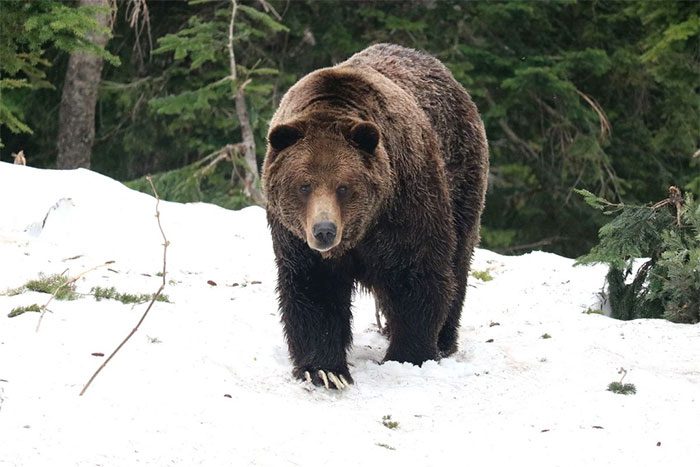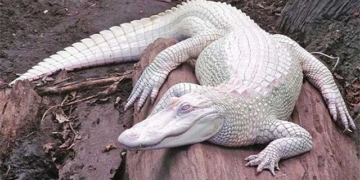The Amur region in eastern Russia is experiencing unusually high temperatures, causing bears to suffer from sleep disorders.
Hibernation (commonly observed in bears) is a regulated state of hypothermia in animals that reduces their metabolic rate to the lowest possible level. This phenomenon lasts for several days or even weeks, helping animals conserve energy during the frigid winter months.
During hibernation, bears—representatives of some animal species—significantly lower their metabolic activities, body temperature, and breathing rate to very low levels. At this time, the energy needed to sustain life is primarily derived from fat that they have stored up since autumn.

Some bears are suffering from sleep disorders due to the impact of climate change. (Photo: Getty).
However, an ironic situation has arisen for bears in the Amur region of eastern Russia, as the area’s temperatures have become abnormally warm, preventing their bodies from entering hibernation.
The Amur wildlife conservation agency reported that some bears are suffering from sleep disorders.
Specifically, they have been found wandering around, in a state of half-sleep, near their nesting areas, seemingly waiting for temperatures to drop so they can resume their hibernation.
“The bears cannot hibernate, even though they have prepared sufficient fat reserves,” the agency stated.
Oivind Toien, a zoologist at the Arctic Biology Institute of the University of Alaska Fairbanks, mentioned that this disruption is extremely dangerous since hibernation is a vital activity for bears in cold regions.
“For bears, especially young and developing individuals, hibernation is necessary as it stabilizes their metabolic rate,” Toien shared. “If they cannot sleep, they will expend a lot of energy, which may adversely affect their long-term growth.”
This expert noted that bears typically begin their hibernation around late October, but each individual decides when it is ready to do so.
A long sleep means that bears need to accumulate enough fat reserves to survive the winter. When food supplies begin to dwindle and temperatures start to drop, bears know it is time to head back to their dens.
Usually, bears will start to leave their dens when the weather warms up in spring. However, due to climate change, the hibernation period for bears in general is becoming shorter.


















































